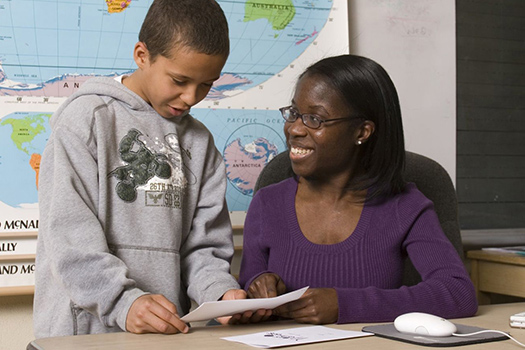If you work with struggling readers, chances are you’ve encountered a student with dyslexia. Dyslexia is the most common learning disability in the country. Students with dyslexia are smart and competent, but differences in their brains make reading much harder for them. While educators and parents don’t usually make official dyslexia diagnoses, they are often the first ones to spot the symptoms, which include trouble with decoding, spelling, rhyming, and phonological awareness.
National Public Radio recently featured a special series entitled “Unlocking Dyslexia,” which explores the topic of dyslexia in short, pithy segments that aired last month. This series is an accessible and engaging overview of dyslexia and the way it’s currently playing out in U.S. education. We highly recommend listening to the segments (each one is between 4 and 7 minutes long) or reading the written synopsis. The segments are as follows:
- Millions Have Dyslexia, Few Understand It. This segment debunks some common misconceptions about dyslexia and offers a glimpse into the lives of individuals and families who struggle with it.
- How Science Is Rewiring the Dyslexic Brain. This segment describes brain research that reveals how dyslexic brains are different. It also explores how intensive reading interventions can retrain the brain to read more easily.
- Raising a Child With Dyslexia: 3 Things Parents Can Do. This segment highlights three things parents can do to help children with dyslexia: 1) Intervene as soon as possible. 2) Help the child cultivate a passion that boosts his or her confidence. 3) Make a financial plan to get as much high-quality tutoring for the child as possible.
- Dyslexia: The Learning Disability That Must Not Be Named. This segment reveals that many schools don’t have the resources to provide special services for students with dyslexia. It highlights the need for more funding and more consistency across districts in order to better support students with this learning difference.
- Unlocking Dyslexia: Personal Stories of Frustration—And Success. "Today I'm 50 years old and when I heard your story on the radio I did the unexpected, I cried," is one of the many comments that poured in after NPR ran this series. This article features the insightful and hopeful comments from listeners who live with dyslexia.
There is currently no cure for dyslexia, but research shows that intensive reading interventions can make a huge difference in helping students with dyslexia learn to read more easily. Read Naturally is one such intervention.
This page on our website explains the most effective instruction for students with dyslexia according to researchers. It also describes the specific ways in which Read Naturally interventions are well suited to help students with dyslexia. Read Naturally interventions are effective, affordable, and can be easily incorporated into both school and home settings. If you know a student with dyslexia, please get in touch. We would love to work with you to find the best approach for your student.
Students with dyslexia often go on to have great success in school and in life, and the process of overcoming their struggles helps build character and resilience. Thank you for doing your part to support these students. When they find success in the difficult task of reading, their lives profoundly change for the better.
 Share your student’s success story—nominate him or her for our Star of the Month award. Win a Barnes & Noble gift card for the student and a Read Naturally gift certificate for your class!
Share your student’s success story—nominate him or her for our Star of the Month award. Win a Barnes & Noble gift card for the student and a Read Naturally gift certificate for your class!
Post a New Comment